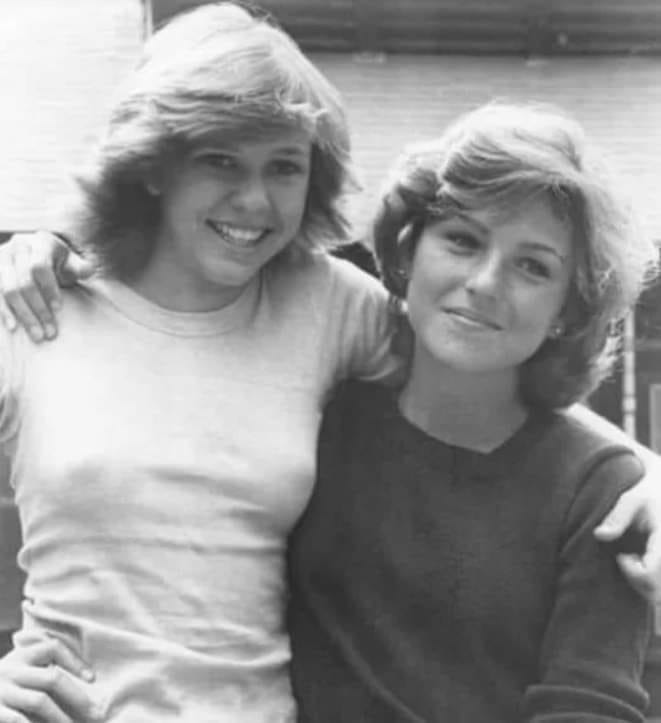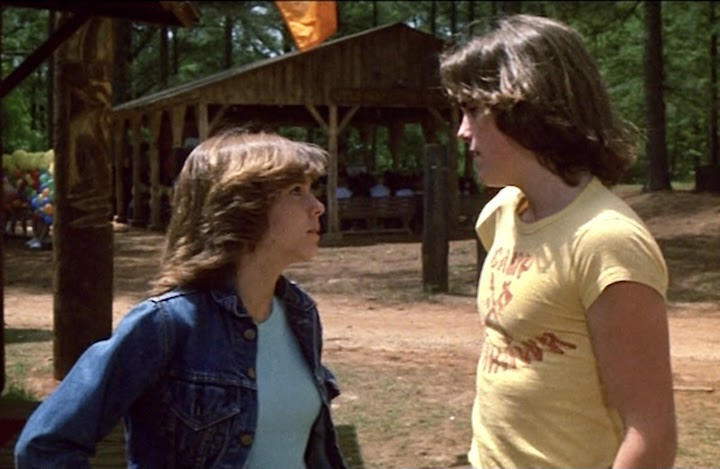Slapstick comedy, rebellious antics, and crude humor often come to mind when thinking of 1980s teen comedies. However, Little Darlings from 1980 sets itself apart. What initially appears to be a scandalous story about two girls at summer camp competing to lose their virginity first transforms into a thoughtful and emotionally rich exploration of adolescence, societal expectations, and self-discovery. Starring Kristy McNichol and Tatum O’Neal, the film has quietly earned its cult classic status thanks to its intelligent storytelling beneath an intriguing premise.
At first glance, the movie seems like just another teenage comedy, centered on Ferris, a wealthy but naive girl, and Angel, a tough, working-class teenager. Their rivalry at summer camp takes an unexpected turn when they make a bet about who will lose their virginity first. Yet, rather than leaning into shock value, the film approaches its themes with unexpected depth and sincerity.
Unlike films such as Fast Times at Ridgemont High or Porky’s, which often rely on explicit humor, Little Darlings delves into the emotional complexities of growing up. It examines how societal pressures shape young people’s decisions and perspectives, making the story about much more than just a competition. The narrative focuses on Angel and Ferris as they navigate their identities, vulnerabilities, and what intimacy truly means, rather than merely portraying teenage rebellion.
One of the film’s most striking qualities is its commitment to telling the story through a female lens. While many coming-of-age movies of the era center on male experiences, Little Darlings offers a rare and authentic look at teenage girlhood. Instead of objectifying boys in a scene where the girls secretly watch them skinny-dipping, the moment is more about curiosity and camaraderie among the girls. Similarly, Ferris’s interactions with camp counselor Gary and Angel’s relationship with Randy prioritize emotional depth over physical attraction, making these connections feel more genuine and nuanced.

This perspective was groundbreaking at the time and remains refreshingly relevant today. It presents a more thoughtful and balanced portrayal of adolescent relationships, highlighting the emotional and psychological aspects of growing up rather than reducing teenage experiences to stereotypes.
Kristy McNichol delivers an outstanding performance as Angel, capturing the contrast between her tough exterior and the deep longing for love and acceptance that she tries to hide. Her portrayal is particularly powerful in moments where Angel’s emotions are raw and unfiltered, such as when she quietly admits to herself how lonely she feels after an experience with Randy. This moment encapsulates the gap between societal expectations and personal reality, illustrating the emotional weight young people often carry.
Tatum O’Neal also brings depth to her role as Ferris. Initially presented as composed and self-assured due to her privileged background, she gradually reveals her innocence as she navigates her encounters with Gary. The film handles these moments with care, ensuring that Gary’s response to Ferris’s advances is respectful rather than exploitative. His gentle rejection emphasizes understanding rather than judgment, reinforcing the film’s mature approach to teenage curiosity. Ferris’s realization that intimacy is about more than physicality makes her journey just as compelling as Angel’s.
The supporting cast adds warmth and humor to the story. Cynthia Nixon, in her film debut, shines as Sunshine, a quirky camper with free-spirited parents. Her comedic moments, whether she’s advocating against meat consumption or handing out vitamins, bring lightheartedness to the film without turning her character into a caricature. Matt Dillon’s portrayal of Randy adds an unexpected layer of sincerity. Rather than being the typical overconfident teenage heartthrob, his insecurities make his relationship with Angel feel more authentic. Meanwhile, Jenn Thompson delivers a standout comedic performance as a mischievous camper whose antics, including an amusing incident with a condom machine, add to the film’s charm.

Little Darlings challenges many of the conventional tropes found in 1980s teen comedies. Angel and Ferris are not reduced to simple archetypes; their experiences are multifaceted and deeply human. The film also treats its male characters with the same level of respect and complexity, portraying them as individuals rather than stereotypes.
The humor in the movie feels natural rather than exaggerated. Instead of relying on outrageous gags or crude jokes, it finds comedy in relatable moments, such as the girls’ awkward attempts to navigate puberty and their overconfidence in front of their peers. These small, realistic details contribute to the film’s authenticity.
For its time, Little Darlings was bold in addressing topics like peer pressure, contraception, and the double standards surrounding teenage sexuality. A particularly significant moment occurs when Angel gives Randy a condom, a subtle yet powerful acknowledgment of personal responsibility and agency. The film also critiques the contradictory expectations placed on young women. While Angel and Ferris face judgment from their peers, the story itself never condemns them. Instead, it fosters empathy and understanding, allowing the audience to connect with the characters on a deeper level.
Despite being set in the late 1970s and early 1980s, complete with a soundtrack featuring Blondie and John Lennon, the themes of identity, vulnerability, and self-discovery remain universally relatable. The film’s lasting impact comes from its willingness to prioritize emotional truth over sensationalism. It proves that coming-of-age stories can be powerful without resorting to exaggerated drama or moralizing.
Little Darlings is far more than just another teen comedy from the 80s. It stands out due to its heartfelt performances, thoughtful storytelling, and its emphasis on the female perspective. Kristy McNichol and Tatum O’Neal bring depth and sensitivity to their roles, and the film’s handling of teenage relationships is refreshingly mature.
For anyone seeking a coming-of-age story that blends humor, heart, and emotional honesty, Little Darlings is a must-watch. It is not just a film but a timeless reflection on the complexities of growing up, leaving a lasting impression on those who experience it.
